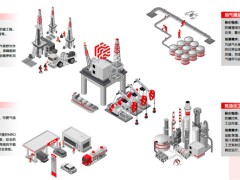据油价网2021年7月25日报道,在竞争的后期,俄罗斯最近宣布了针对电动汽车(EV)增加投资,试图赶上欧洲其他国家的能源转型。俄罗斯预计将从莫斯科开始建设电动汽车基础设施。 俄罗斯首都计划每年安装200个电动汽车充电站,从2021年开始到2023年前将建造600个电动汽车充电站。
莫斯科交通部门负责人马克西姆·利克苏托夫表示:“现在莫斯科大约有2000辆电动汽车,而且电动汽车的数量每年都在以10-15%的速度增加。”“要想实现电动汽车数量更大的增加,必须安装更多的充电基础设施。”
在未来十年里,莫斯科的公共交通也将转向电力。 Mosgortrans是莫斯科市公共汽车和有轨电车网络的所有者,该公司计划在今年年底前将其电动巴士数量从600辆增加到1000辆,目标是到2024年前实现2000辆电动巴士取代现有的汽油和柴油巴士。
然而,在电动汽车方面,俄罗斯远远落后于欧洲其他国家,全国仅注册了1.1万辆电动汽车,而2019年欧盟的这一数字为100万辆。 但这一数字预计在未来几年还会增加,预计2021年俄罗斯的电动汽车销量将达到1000辆,预计未来几年这一数字将每年翻番。
就在几周前,有报道称俄罗斯推出了一项新的国家计划,将投资110亿美元发展电动汽车交通。 这大约是此前为该项目指定资金的两倍。
这个计划的大部分资金将来自对传统燃料汽车的销售征税,以及对进口外国电动汽车征收两项新关税。
根据这项计划,俄罗斯预计在2022年生产3000辆电动汽车,到2030年将增加到每年21.7万辆。 目前,俄罗斯不生产任何电动汽车,这意味着在该国强大的汽车行业中,电动汽车将有很大的发展潜力。
俄罗斯的汽车工业在该国经济和就业中占了很大一部分,有超过60万,或1%的劳动力在汽车工业就业。 俄罗斯仍然是欧洲第五大汽车市场,年产量为310万辆。 这使得俄罗斯在未来几年向电动汽车制造业转型时处于有利地位。
尽管俄罗斯起步较晚,但与其他欧洲生产国相比,俄罗斯可以为消费者提供更便宜的电动汽车,从而拥有竞争优势。 预期中的零排放Terra Transport Asset(简称Zetta)的成本预计仅为6100美元,比许多替代品都便宜,也低于德国的电动汽车补贴计划,从理论上讲,消费者可以免费获得一辆汽车。
普京总统的气候顾问Ruslan Edelgeriev表示:“全球和俄罗斯的主要汽车制造商都在宣布新的电动汽车生产线。 很多公司计划到2030年前停止生产内燃机汽车。”此外,“在未来20-30年,所有人都将转向电动汽车。”
俄罗斯工程公司L-Charge宣布,将通过应用程序为电动汽车提供按需移动充电服务,允许电动汽车车主在莫斯科各地申请充电,私营企业也加入了这股电动汽车热潮。 如果成功,L-Charge计划把电动汽车充电业务扩展到巴黎、柏林、纽约、阿姆斯特丹和伦敦。 如果俄罗斯在电动汽车制造和推广计划上取得成功,这可能是众多私人企业的第一个创举。
虽然俄罗斯在电动汽车领域的创新并不出名,但大量的投资、进行能源转型的意愿、俄罗斯的汽车制造技术和低成本可能会让俄罗斯在追赶欧洲其他国家时拥有竞争优势。
李峻 编译自 油价网
原文如下:
Russia Is Finally Embracing The Electric Vehicle Boom
Late in the race, Russia has recently announced investments targeting electric vehicle (EV) growth in an attempt to catch up with the transition across the rest of Europe. Russia is expected to start work on its EV infrastructure creation, starting in Moscow. The city plans to install 200 EV charging stations annually, until 600 are established by 2023, beginning in 2021.
The head of the city's transport department, Maxim Liksutov, stated "There are around 2,000 (electric) cars in Moscow now and their number increases every year by about 10-15%. Charging infrastructure has to appear for it to grow more."
Within the next decade, the city will also see its public transport shift to electric. Mosgortrans, the cities bus and tram network owner, intends to increase its electric bus fleet from 600 to 1000 by the end of the year, aiming for 2,000 electric buses to replace the existing petrol and diesel-fuelled fleet by 2024.
However, Russia is way behind the rest of Europe when it comes to EV, with just 11,000 electric cars registered across the country, compared to 1 million across the EU in 2019. But this figure is expected to increase in the coming years, with an anticipated 1,000 EV to be sold in Russia in 2021, expecting this figure to double annually in subsequent years.
This comes just weeks after reports that Russia has introduced a new state program, which will see an investment of $11 billion in the development of EV transport. This is around double the previously designated funding for the program.
Much of the funding for the program will come from the introduction of a tax on the sale of traditionally-fuelled cars as well as two new tariffs on the import of foreign electric vehicles.
Under the program, Russia expects to produce 3,000 in 2022, growing to produce 217,000 EV annually by 2030. At present Russia does not manufacture any electric cars, meaning there is significant potential to develop this part of the country’s strong automotive sector.
Russia’s automotive industry makes up a significant part of the country’s economy and employment, with over 600,000, or 1 percent of the workforce, employed in the sector. Russia continues to be the fifth-largest auto market in Europe with a production rate of 3.1 million vehicles each year. This puts it in a strong position to transition to EV manufacturing in the coming years.
Although late to the table, Russia could have a competitive edge on other European producers with cheaper EVs available for consumers. The anticipated Zero Emission Terra Transport Asset, or Zetta, is expected to cost just $6,100, making it cheaper than many alternatives and less than Germany’s EV subsidy scheme, theoretically giving consumers a free car.
Ruslan Edelgeriev, climate adviser to President Putin has stated, “Leading automakers, globally and in Russia, are announcing new electric vehicle lines. A lot of them plan to stop making internal combustion engine cars by 2030.” Further, “In the next 20-30 years everyone will transition to electric vehicles.”
Private companies are also buying into the EV craze as Russian engineering firm L-Charge has announced that it will be providing on-demand mobile charging for electric cars via an app, allowing EV owners to request a charge across Moscow. If successful, the company plans to expand to Paris, Berlin, New York, Amsterdam, and London. This could be the first of many private initiatives if Russia is successful in its EV manufacturing and uptake plans.
While Russia hasn’t been known for its innovation in EV, significant investment, the willingness to make the shift, and the country’s automotive manufacturing know-how and low costs could give it a competitive advantage as it catches up with the rest of Europe.
免责声明:本网转载自其它媒体的文章,目的在于弘扬石化精神,传递更多石化信息,并不代表本网赞同其观点和对其真实性负责,在此我们谨向原作者和原媒体致以敬意。如果您认为本站文章侵犯了您的版权,请与我们联系,我们将第一时间删除。







